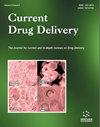无机纳米材料在结核病防治中的应用:全面综述
IF 3
4区 医学
Q2 PHARMACOLOGY & PHARMACY
引用次数: 0
摘要
:结核病(TB)继续对全球健康构成重大威胁,每年新增感染人数达数百万。目前的治疗策略,如直接观察治疗(DOT),面临着患者不依从和耐药结核菌株出现等挑战。为了应对这些障碍,人们开发了利用无机/金属纳米材料的创新方法,以加强针对肺泡巨噬细胞的药物输送,而肺泡巨噬细胞正是结核分枝杆菌的栖息地。这些纳米材料已显示出对各种结核菌株的有效性,具有提高药效、减少副作用和在感染部位持续释放药物等优点。本综述探讨了不同金属纳米粒子、金属氧化物纳米粒子和金属-金属氧化物混合纳米粒子在结核病治疗中的应用,包括耐多药(MDR)和广泛耐药(XDR)菌株。无机纳米粒子与传统抗结核药物的协同作用在抗结核感染方面取得了可喜的成果。该领域的进一步研究和开发为克服当前结核病治疗所面临的挑战和改善患者预后带来了巨大希望。本文章由计算机程序翻译,如有差异,请以英文原文为准。
Applications of Inorganic Nanomaterials against Tuberculosis: A Comprehensive Review
: Tuberculosis (TB) continues to pose a significant global health threat, with millions of new infections recorded annually. Current treatment strategies, such as Directly Observed Treatment (DOT), face challenges, including patient non-compliance and the emergence of drug-resistant TB strains. In response to these obstacles, innovative approaches utilizing inorganic/metallic nanomaterials have been developed to enhance drug delivery to target alveolar macrophages, where Mycobacterium tuberculosis resides. These nanomaterials have shown effectiveness against various strains of TB, offering benefits such as improved drug efficacy, minimized side effects, and sustained drug release at the infection site. This comprehensive review explores the applications of different metal nanoparticles, metal oxide nanoparticles, and metal-metal oxide hybrid nanoparticles in the management of TB, including multidrug-resistant (MDR) and extensively drug-resistant (XDR) strains. The synergistic effects of combining inorganic nanoparticles with conventional anti-TB drugs have demonstrated promising results in combating TB infections. Further research and development in this field hold great promise for overcoming the challenges faced in current TB therapy and improving patient outcomes.
求助全文
通过发布文献求助,成功后即可免费获取论文全文。
去求助
来源期刊

Current drug delivery
PHARMACOLOGY & PHARMACY-
CiteScore
5.10
自引率
4.20%
发文量
170
期刊介绍:
Current Drug Delivery aims to publish peer-reviewed articles, research articles, short and in-depth reviews, and drug clinical trials studies in the rapidly developing field of drug delivery. Modern drug research aims to build delivery properties of a drug at the design phase, however in many cases this idea cannot be met and the development of delivery systems becomes as important as the development of the drugs themselves.
The journal aims to cover the latest outstanding developments in drug and vaccine delivery employing physical, physico-chemical and chemical methods. The drugs include a wide range of bioactive compounds from simple pharmaceuticals to peptides, proteins, nucleotides, nucleosides and sugars. The journal will also report progress in the fields of transport routes and mechanisms including efflux proteins and multi-drug resistance.
The journal is essential for all pharmaceutical scientists involved in drug design, development and delivery.
 求助内容:
求助内容: 应助结果提醒方式:
应助结果提醒方式:


